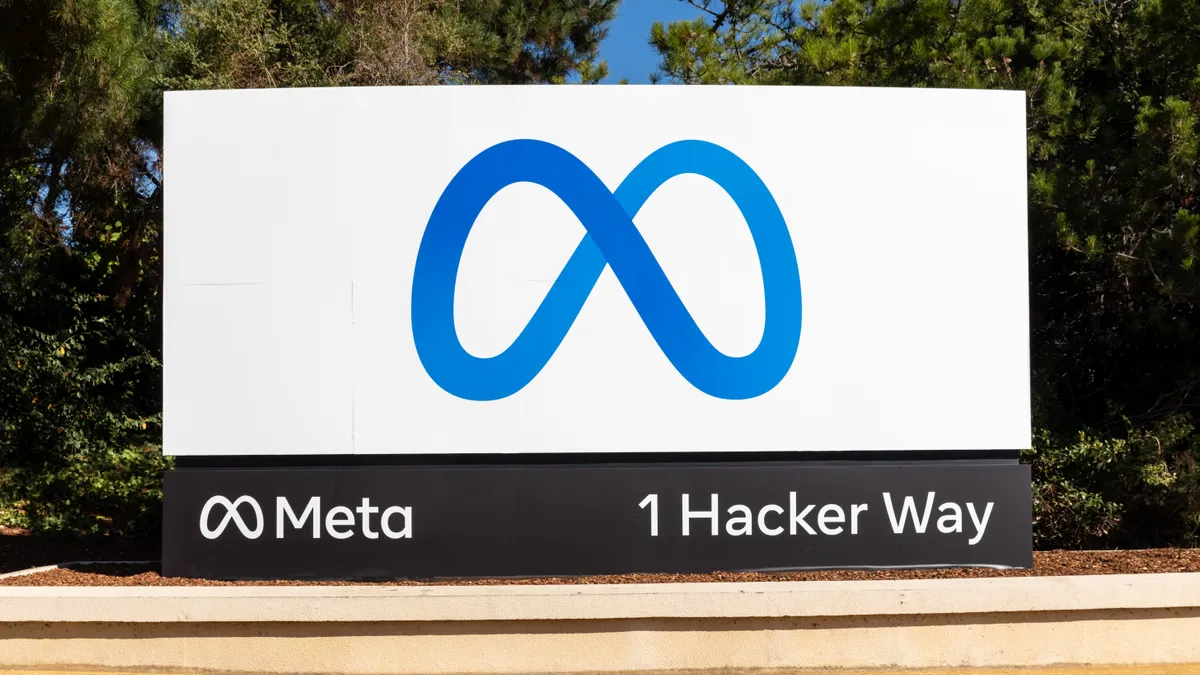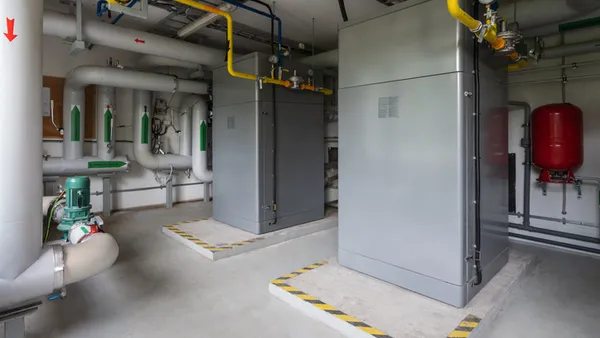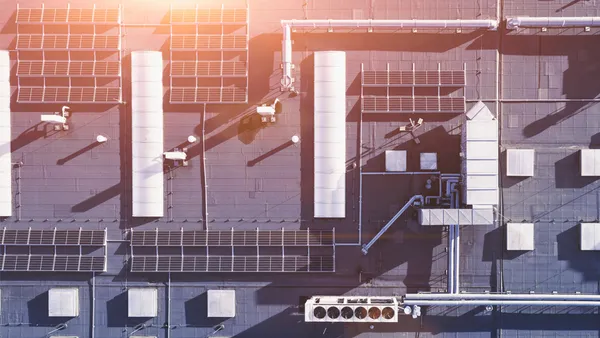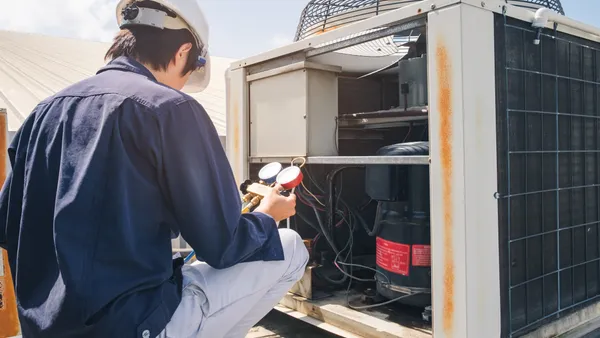Dive Brief:
- Meta formed an agreement with Ørsted to support its Mesa, Arizona, data center with solar energy from the Salt River Project, according to a Dec. 11 press release.
- Under the contract, Meta will receive the majority of the solar energy generated by Ørsted’s Eleven Mile Solar Center currently under construction in Pinal County, Arizona, to power its data center.
- The project seeks to advance Meta’s 2030 net-zero goals and support its commitment to power its data centers on 100% renewable energy, according to Meta’s 2023 Sustainability Report.
Dive Insight:
Once online in 2024, the Eleven Mile Solar Center will be the largest solar-plus-battery project on the Salt River Project’s power grid and one of the largest battery energy storage systems built in a single phase in the U.S., Meta said in a statement. The project will include a 300-megawatt solar farm and a 300-MW, four-hour battery energy storage system.
“Operating sustainable data centers is foundational to our sustainability strategy,” Rachel Peterson, vice president of data center strategy at Meta, said in the company’s 2023 sustainability report. “Within our global footprint, our data centers generate the highest percentage of our energy use, water use and GHG emissions, which is why increasing their efficiency is critical in maintaining net zero operations and striving for a net zero value chain.”
According to the report, Meta’s data centers are supported by 100% clean energy. By incorporating design and construction strategies that conserve energy and water, the tech giant has been able to earn a minimum of LEED Gold certification at all of its operational data center buildings, Meta said.
Subsequently, its total data center Scope 1 and 2 greenhouse gas emissions have declined around 96%, to 22,163 carbon dioxide equivalent metric tons in 2022 from 568,000 CO2-equivalent metric tons in 2017, Meta said in its report.
In addition to negating the carbon emissions from powering its data centers, Meta has set a goal of reducing workplace carbon emissions 50% by 2030 from a 2019 baseline. It intends to achieve this reduction through a 32% decrease in office energy consumption, a 50% reduction in waste generated in offices, a 35% cut in employee commute emissions, a 40% drop in embodied carbon of building materials and furniture and a 54% decline in the carbon intensity of the food it provides.
Meta is expected to receive an allocation of 50 MW from the 100-MW West Line Solar Facility, which opened in Eloy, Arizona, earlier in 2023, to power its data centers. It will also get a portion of solar energy from a 200-MW facility in Coolidge, Arizona, it said. The solar and stored energy not needed by its data centers will be available to the Salt River Project’s customer base, according to the release.











